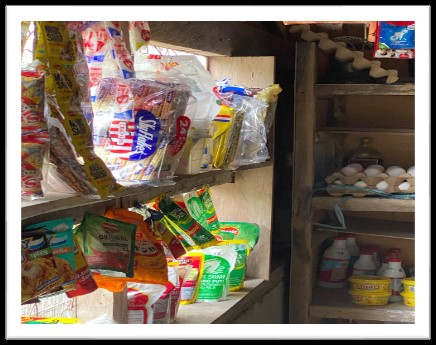There is always a Sari-Sari store, sometimes called a retail shop, located in every Filipino neighborhood since Filipinos always have this alternative when they forget to buy something at the large grocery stores in the city or when their nearest market is too far from the barangay (village) itself. Some of the stores are progressively providing a wider range of services, like e-load and peso Wi-Fi for telephones.
As more people gather in front of Sari-Sari establishments to use their internet connections, customers purchase more food for their snacks while hanging out outside the store on the internet and through that, more income is being made. This store’s proprietor should also be able to deal with clients who enjoy taking items on loan. This business practice sometimes results in bankruptcy due to debtors not paying. It is vital to take this into account given this business is operated with the sole purpose of augmenting family income. This small store is like other businesses with lots of competitors around. In each neighborhood there are no less than 3 Sari-sari stores. A funny thing about this business is sometimes the stores are right next to each other. With a different family running each one.
Get your travel gadgets from Sharper Image they have everything from electronics to travel pillows!!! All first quality.
The Sari-Sari store is always a good choice when it comes to basic goods like snacks, canned food, coffee, retail candies, instant noodles, seasonings, retail shampoo, soap, detergent, eggs, inexpensive slippers, school supplies and other everyday necessities of Filipinos. Because it saves on transportation costs and is usually less expensive than a big store because it is a retail store with very little overhead usually runs out of a family’s home. This modest, family-run company is highly significant to the Filipino community.

Sari-sari store have existed since the start of Philippine-Chinese trade in the Sung dynasty period (1127 A.D.) (Snoey 1972). The term “sari-sari” is Tagalog for “variety” or “su.” Over time, sari-sari stores have influenced the evolution of Philippine society and economy. Because up to 90% of households in the country belong to the lowest economic classes. Many people prefer shopping at sari-sari stores where products are sold in smaller quantities, over supermarkets, where products are packaged in larger quantities and require a larger cash outlay. Sari-sari stores account for about 90% of all retail establishments in the country. The stores are typically perceived as modest businesses that offer the invaluable service of bringing resources closer to clients who fall into lower economic categories.
Stay cool and look cool with Hanes tees and clothing. Check out the link below!
For the ladies stay cool and look cool Hanesoneplace ladies
The sari-sari shop provides easy reasonably priced access to basics. The concept of tingi, or retail, is used in the Philippines, where customers can buy “units” of a product instead of the complete package. Products and other items were hung to increase visibility so that customers could make decisions outside the store. In contrast to grocery stores, where patrons choose the products they wish to purchase, sari-sari stores typically have customers wait outside the store while they tell the seller what they will be purchasing. The seller then simply delivers the goods to the customers through a tiny square hole in the store’s front.
For easy and affordable access to essential necessities, villagers depend on sari-sari stores because without it, their time and budget would be negatively impacted.
Don’t miss The Amazing Deals link on our web page www.ShopwithKurt.com special Amazon deals #ad #sponsered. Check out the store section with LOFT, Garrett Wade, and LEGOS.

